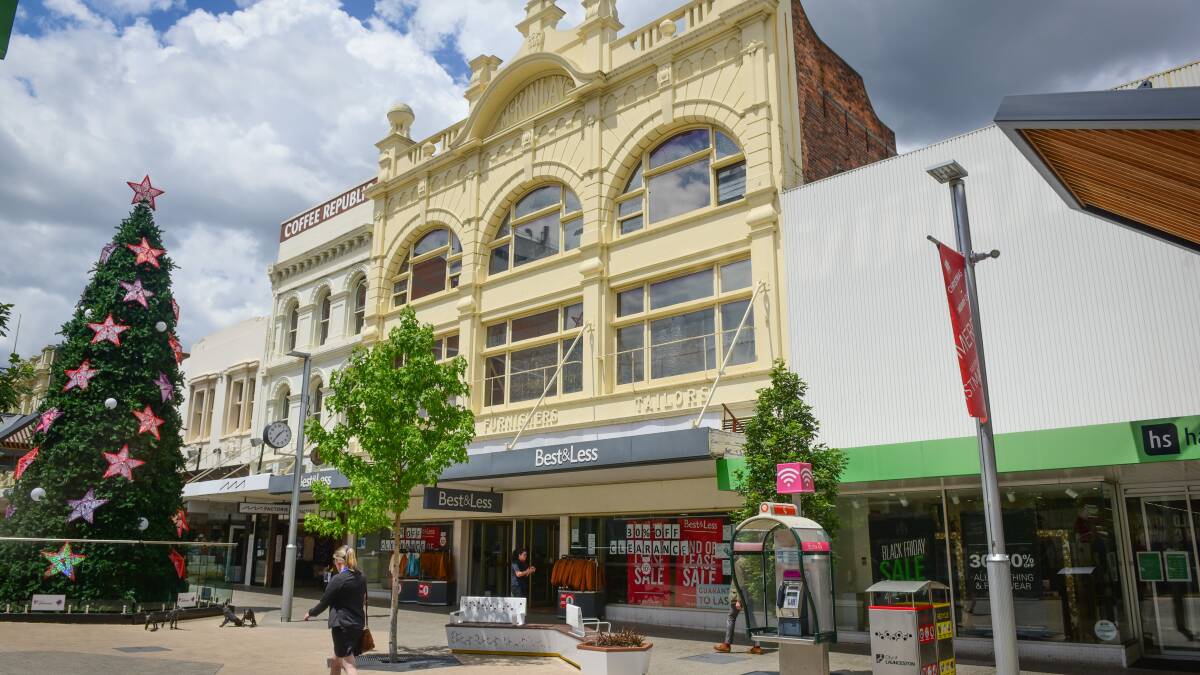
TIME TO END RETAIL BYGONE ERA
SYMPATHISE with the declining High Street retailer, facing the competition of lower-priced online alternatives. But I also can't help being frustrated at a complete inability to adapt opening hours to meet the needs of a modern-day workforce.
Subscribe now for unlimited access.
$0/
(min cost $0)
or signup to continue reading
The traditional 9am to 5pm opening hours for a shop belongs to the bygone era of stay-at-home housewives, and in Launceston especially shops seem completely opposed to staying open past 5.30pm. Nowadays, with most household partnerships both working full-time, foot traffic is confined to lunch breaks or a very speedy after-work dash to get in before the doors close.
If we want to innovate our High Street, how about we break the status quo, open between 11am and 7pm, and mostly audaciously of all, dare to open on a Sunday.
Alex Baufort, Launceston.
RIVER FIX WILL HELP CITY
AS a former Northern Midlands mayor and TasWater chief owners rep, I'm saddened by the state of the Tamar River and its ongoing problems.
The City of Launceston council has been largely silent. I don't blame them. The issues are complex. But perhaps the council should be the champion of fixing the river and not let other government and community bodies speak for the river. This issue goes to the heart of the city and the surrounding region. A vibrant city needs the river fixed.
David Downie, Campbell Town.
OLD-TIME HOSPITAL LEADERSHIP
When I nursed at the Launceston General Hospital years ago there was one person in charge of virtually everything, a matron. She had an offsider, a deputy matron, and between them, they ruled the entire place with rods of iron. I won't say they were liked, but they were respected and they got things done without a battalion of admin to help. No one argued with these formidable women, not doctors, not nurses, not cleaners.
They knew what was going on, not from endless meetings and reports but because they went around the hospital to every patient daily and spoke with them. Patients came first and patients liked them. They did not tolerate any dodgy treatment, they were fearless in tackling any staff who needed it, whoever they were, they fixed problems, sometimes before they happened.
I know that's ancient history and we now have a bigger hospital for a bigger population, many more patients and many more staff, but bigger is not always best.
Heather Donaldson, Westbury.
WHEN IS ENOUGH, ENOUGH?
HOW much support should we expect for the tourism industry with public monies?
Tourism is a luxury industry, so from that point of view, it should be at the bottom of the list. But it is part of our culture and does give significant employment to many Tasmanians.
However, the world has changed drastically with the previously significant numbers of Chinese visitors under political pressure to not come. Add in that fact that coronavirus will be with us for years to come and it will be a long time, if ever, that international tourism will significantly support our economy again.
Government policies should be designed to help the overseas tourism industry shutdown as painlessly as possible. Public monies should not be used to prop it up.
John Coulson, Dilston.
BURDEN OF CHILDCARE COSTS
THE article "Childcare fees climb by five per cent in Launceston" (The Examiner, December 20) reinforces to Launceston families what they already know.
That out of the pocket early learning and care costs in Tasmania are rising rapidly and we need government reform so the early learning system better supports parents and children.
Families can no longer afford to pay what the OECD suggests are some of the highest out-of-pocket fees for early childhood education and care in the world, especially after going through the economic stagnation of a pandemic.
And with JobKeeper and JobSeeker support payments reduced, there will be growing pressure on many household budgets. Parents in Tasmania and across Australia need universally accessible and high-quality early learning now more than ever. They need our policymakers to ensure every child is given the best start in life.
Not only will a reformed early learning system ease the financial burden for parents, but it will also put more women in paid work, ensure educators are adequately paid, grow business and help the economy recover. There has never been more proof of its worth than now. The pandemic has highlighted how helping parents and children will benefit all Australians.
Government assistance for families is lagging behind the actual cost of quality early learning and care services. The subsidy model isn't working, and parents and children have earned a better funding deal.
It is time our political leaders step up to deliver a high quality, universally accessible early learning system for all.
Jay Weatherill, Thrive by Five chief executive.
BETTER HOSPICE CARE NEEDED
BRIAN Walker (The Examiner, January 14) is spot on regarding the need for a dedicated hospice in Launceston. A flawed feasibility study commissioned in 2015 by the then Health Minister Michael Ferguson found "palliative and end of life care services in Launceston were adequate for the next two decades". Successive governments have failed dying Northern Tasmanians since 2007 when Philip Oakden House was allowed to close under the watch of Labor.

